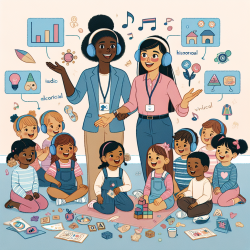The study, conducted by Verma et al., compared the outcomes of 27 unilateral pediatric CI users who were divided into two groups based on the mode of therapy received: tele-therapy and conventional face-to-face therapy. The participants were further categorized based on their hearing age into three groups: 0-2 years, 2-4 years, and greater than 4 years. The researchers employed a comprehensive test battery including the Integrated Scales of Development (ISD), Speech Intelligibility Rating (SIR) scale, and Revised Categorical Auditory Perception (CAP-R) scale to evaluate speech, language, and auditory outcomes.
Key findings from the study are:
- Conventional rehabilitation yielded better outcomes compared to tele-therapy across all domains, especially for children with a hearing age of 0-2 years.
- Significant progress was observed in both groups after one year of therapy, but the rate of progress was higher in the conventional therapy group.
- Parents and caretakers of children with lesser hearing experience showed a preference for conventional therapy due to the challenges associated with tele-therapy, such as connectivity issues and the need for more intensive guidance.
For practitioners, these findings highlight the importance of considering the hearing age and specific needs of pediatric CI users when choosing between tele-rehabilitation and conventional therapy. While tele-rehabilitation offers a viable alternative during unprecedented times like the COVID-19 pandemic, conventional therapy remains crucial for early-stage CI users to achieve optimal speech, language, and auditory outcomes.
Moreover, this study underscores the necessity for further research to develop evidence-based tele-therapy rehabilitation programs tailored to pediatric CI users. Practitioners are encouraged to contribute to this growing body of research to refine and enhance tele-rehabilitation practices.
To read the original research paper, please follow this link: Outcome measures following tele-rehabilitation and conventional face to face rehabilitation in paediatric cochlear implant users during COVID-19 pandemic: A pilot study in a tertiary care setup.










